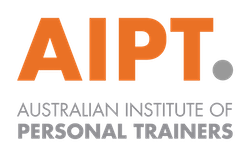Returning to Education at a Mature Age in Australia

Studying as a mature age student is a choice more and more people are starting to take up on in Australia, with our country having one of the highest participation rates in education among OECD member countries for students aged 30 and over.
The opportunities are just as endless for mature students, as they are for students just out of high school – with the 21st century providing undergraduate courses, TAFE, online courses, short courses, postgraduate study and so much more, the typical profile of a student is changing across the country.
Defining a Mature Age Student
Depending on the state and educational provider, there are differences in what truly defines a mature-age student. At some institutions, being mature age is in reference to individuals who had a gap year after high school before returning to study, and for educational providers it is anyone above the age of 23. According to the Victorian Tertiary Admissions Centre (VTAC), being ‘mature age’ is generally referred to as an adult returning to study, which many institutions also comply with. Some courses actually have mature age entry programs where both age and experience in the career field are considered as part of your application.
Statistics show that in 2017, more than
39%
of 25-34-year-olds in Australia now have a bachelor’s degree or higher through higher education in the last couple of decades.
The Benefits of Studying at a Mature Age
Whilst younger students typically dominate university life, it is important to remember that returning to studying at a mature age actually has a lot of benefits, and in many cases, these students excel more in their studies than younger colleagues.
In higher education, it is common for many people to return to education and particularly complete postgraduate study at an older age, as there has been a variety of work experience in the field and the individual has discovered exactly where they sit in the industry. This knowledge and reasoning to return to study should also be applied for short courses at TAFE or online courses at a higher education provider. Many younger students completing these certifications are uncertain as to where they see their careers going; at a mature age, you are already know what you specifically need out of the academic style guide and won’t waste time completing an unnecessary coursework.
There are also important social implications that adult education can bring to society; not only does education increase economic output, but with new jobs being formed and skills being required, reducing the gap between required skills by employers and those of workers is of benefit to any business and society as a whole. The employment opportunities for mature age study also create benefits for low-skilled workers or individuals wanting to have a career change and learn new academic skills. Many people also choose to study not because they don’t have current skills, but to stay up to date with the latest advancements in new technology and other areas in their specific industry.
Tertiary study also provides the opportunity to connect with others of a similar age and those in the same industry, connections and friendships can be formed that may have a lasting impact upon your career progression and opportunities in the industry. If you’re completing an online course or short courses, don’t let this stop you from learning from others and also sharing your work experiences in the field and life experiences as a school leaver. Even though they are titled ‘short’ for a reason, utilise the online forums and multitude of groups available to expand your network and keep it active.
Tips and Advice for Mature Age Study
Here are some ways to make you feel more confident and at ease when you return to any form of education as an older student.
-
Study Options
Many institutions offer a variety of study options available for their range of short courses and undergraduate courses that you can tailor to your preferences. With options to study part time or through evening classes, organise your weekly timetable at times that suit your commitments and/or as a family member.
-
Rely on Services Available
If you find yourself unsure about entry requirements or even assessment guidelines, utilise the support services and student services available for you. Some institutions even offer support for specific schools of study to further personalise the help needed. Don’t be afraid to use these services as they are there to purely offer you help.
-
Set Realistic Expectations and Goals
One of the most important parts of studying and completing a short course or degree is to set realistic expectations on how much effort you will be putting into the course and how much time you will dedicate to its completion. With deadlines and assessment work to be completed, set yourself specific goals, for the day, week or even for your certification as a whole to keep your expectations in line.
-
Being Organised
Being organised is the best way to help reduce unnecessary stress and will make completing your education a whole lot easier. Being on top of activities and a daytime schedule will also help in setting and maintaining realistic goals and expectations. Organisation is also required if you intend to keep work commitments and other aspects of daily life as a mature age student.
Returning to education is daunting at any age, but there are so many benefits why completing a short course or other type of certification is of value at a mature age. By having a greater view of the world with more life experience than the average student attending an education institutional, your previous industry experiences will help inform your studies and may even provide a deeper understanding and perspective to your studies.
It is never to late to study at a mature age, and there is no better time than now to get the qualification that will land you the job of your dreams.







